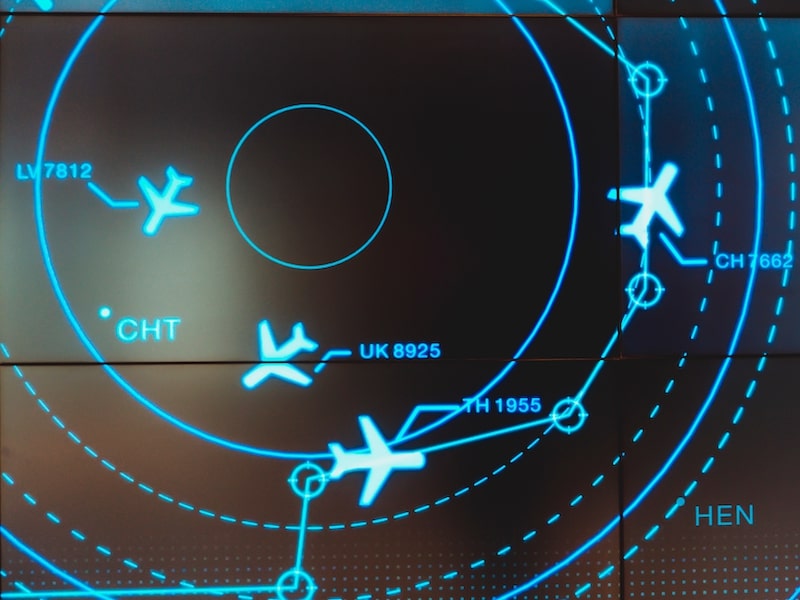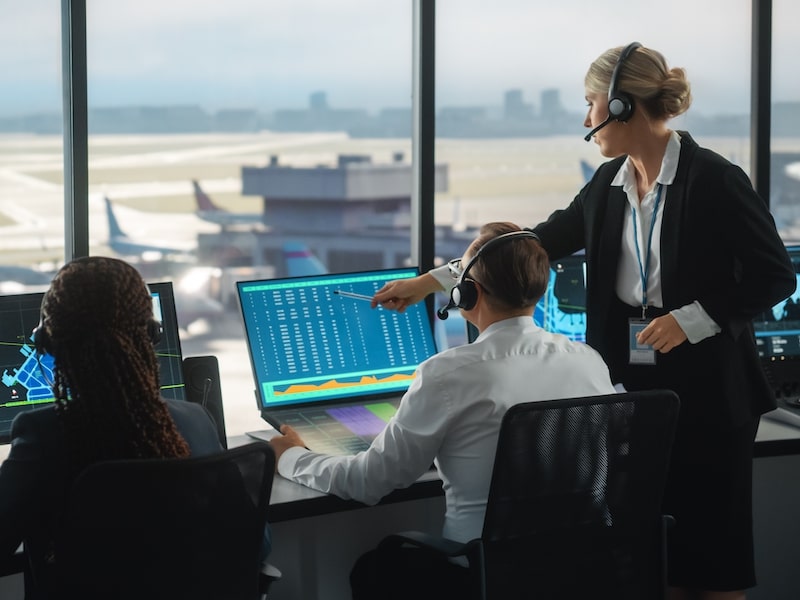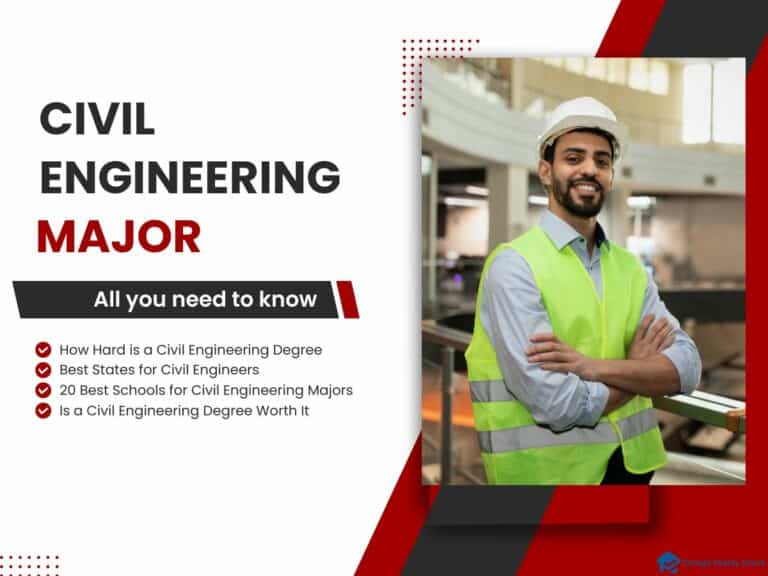Sky High Salaries: The World of Air Traffic Controllers
You love movies like Top Gun and all Airport installments.
Working as an air traffic controller allows you to have a career in the field of avionics while staying on the ground to ensure everyone’s safety — pilots, passengers, and airport employees.
And did I already mention that you get to receive an average of $132,250 per year?
So, why are air traffic controllers paid so much?
Because their work is stressful and exhausting, not to mention that everyone’s safety depends on what they do, an air traffic controller salary is around 186% higher than the national average salary for all occupations ($46,310).
The path to becoming an air traffic controller isn’t easy, either.
Completing an Air Traffic Collegiate Training Initiative (AT-CTI) program approved by the Federal Aviation Administration (FAA) is the first step to becoming an air traffic controller.
You must also pass various tests, complete a training course, and undergo experiential learning for a year.
It’s important that you do everything while you are 30 years old or younger.

A Day in the Life of Air Traffic Controllers
Air traffic control (ATC) requires full concentration at all times.
Remaining focused is a must so that air traffic controllers can react quickly to conditions and circumstances that can change in an instant, thus making them prone to burnout.
Most of them work full-time but may not work 10 hours straight.
What They Do
The primary task of air traffic controllers is to ensure the safety of the aircrew and passengers.
Why do air traffic controllers make so much?
It’s for the fact that a lot of people depend on them to stay alive!
However, ATC also involves directing the flow of aircraft in order to minimize delays — in most instances, managing the movement of several different aircraft all at once is a part of the job.
The following are the things air traffic controllers do on a day-to-day basis:
- Oversee the movement of aircraft on the ground and in the air
- Administer all ground traffic at both runways and taxiways
- Provide pilots with critical landing and take-off instructions
- Inform pilots about weather conditions, runway closures, and other pertinent information
- Transfer control of departing flights to other traffic control centers
- Accept control of arriving flights from other traffic control centers
- Alert airport response staff members in the event of an emergency
To communicate with pilots, air traffic controllers use radio equipment.
Meanwhile, in order to be able to carry out the rest of their ATC tasks effectively and efficiently, they rely on advanced computers, radars, and various other visual references.
What Skills They Need
It’s a must for air traffic controllers to complete the required program beforehand.
However, possessing foundational knowledge is not enough — it takes so much more to ensure an efficient flow of aircraft on the ground and in the air as well as keep everyone involved safe.
The following are some of the skills you need to have as an air traffic controller:
- Teamwork. On an everyday basis, you have to collaborate not only with pilots but also with other air traffic controllers stationed in other areas and various airport staff.
- Communication. Being able to provide clear and concise instructions as well as listen carefully to pilots’ requests and other air traffic controllers’ directions is a crucial responsibility.
- Attention to detail. It’s not uncommon for air traffic controllers to communicate with various pilots and air traffic controllers at once while focusing on various tasks at hand.
- Organization. Most of the time, it’s not just a single aircraft that air traffic controllers must assist but several ones, and that’s on top of their other duties and responsibilities.
- Arithmetic. Air traffic controllers must be very good with numbers and should be able to do math quickly and accurately when computing speeds, distances, times, etc.
- Problem-solving. Because ATC is a high-stress and high-pressure environment where things can get easily complicated, air traffic controllers must be effective problem-solvers.
- Decision-making. Another important trait air traffic controllers must have is the ability to think on their feet, especially since everyone on an aircraft depends on their decisions.
Where They Work
The administration of air traffic control can happen in various areas of an airport.
Here are the most common types of air traffic controllers:
- Tower controllers. The name of these air traffic controllers says where you will find them: in air control towers. It’s where they direct the flow not only of aircraft but also of other vehicles on taxiways and runways in the vicinity. In a nutshell, they are in charge of traffic in the air and on the ground.
- Approach and departure controllers. Ensuring that aircraft traveling within the airspace of the airport remain at safe distances from each other is the primary task of approach and departure controllers. Stationed in structures known as Terminal Radar Approach Control Centers (TRACONs), it’s also a part of their job to relay crucial information to pilots, such as weather notices.
- En route controllers. It’s rare for you to find en route controllers at airports because they are scattered across the country, manning — you guessed it! — en route control centers. Each of them has an assigned airspace, making sure that every aircraft that approaches and flies through it can do so safely.
- ATCSCC controllers. ATCSCC stands for Air Traffic Control Systems Command Center, and it’s where you will find ATCSCC controllers. What they do is monitor traffic within the entire airspace of the country, and provide instructions to air traffic controllers everywhere to fend off traffic jams in the air.
Wondering who pays air traffic controllers?
Over 90% of air traffic controllers in the United States work for the federal government, which means that their salaries are from income taxes, payroll taxes, corporate income taxes, etc.

Spreading Your Wings: How to Become an Air Traffic Controller
Individuals looking to become air traffic controllers must meet a number of requirements and go through a lot of training and examinations, given ATC’s nature.
In the United States, some of the requirements include:
- Being a US citizen
- Passing a medical evaluation
- Passing a background check
- Taking various FAA pre-employment exams
Educational and Experiential Training
You can become an air traffic controller in a couple of ways:
- Going to school
- Gaining related experience
The most common pathway to becoming an air traffic controller is earning either an associate degree or a bachelor’s degree, depending on your career goal’s educational requirements.
However, it’s a must to complete an AT-CTI program with the approval of the FAA.
In some instances, individuals with a bachelor’s degree in related fields such as engineering and transportation may qualify for ATC jobs after completing training.
Speaking of which, most newly hired air traffic controllers undergo training at the FAA Academy.
Afterward, they work as developmental controllers at various air control facilities.
You may also qualify to attend an FAA Academy training to work as an air traffic controller by gaining experience, particularly something that equips them with air traffic control foundational knowledge and skills.
Having three years of related experience may get you qualified.
You may also be eligible to work as an air traffic controller without going to school by having specialized work experience either in a military ATC facility or a civilian one.
Through additional training, air traffic controllers may go from one area of specialization to the other.
Regular Exams and Tests
Every year, air traffic controllers must pass a physical examination.
They also undergo a job performance test twice a year, while they go through drug screenings periodically to ensure the safety of the people air traffic controllers are tasked with protecting.
Read Also: Why are Software Engineers Paid So Much?
Disclaimer: The views and opinions expressed in this article are those of the authors and do not necessarily represent those of the College Reality Check.





